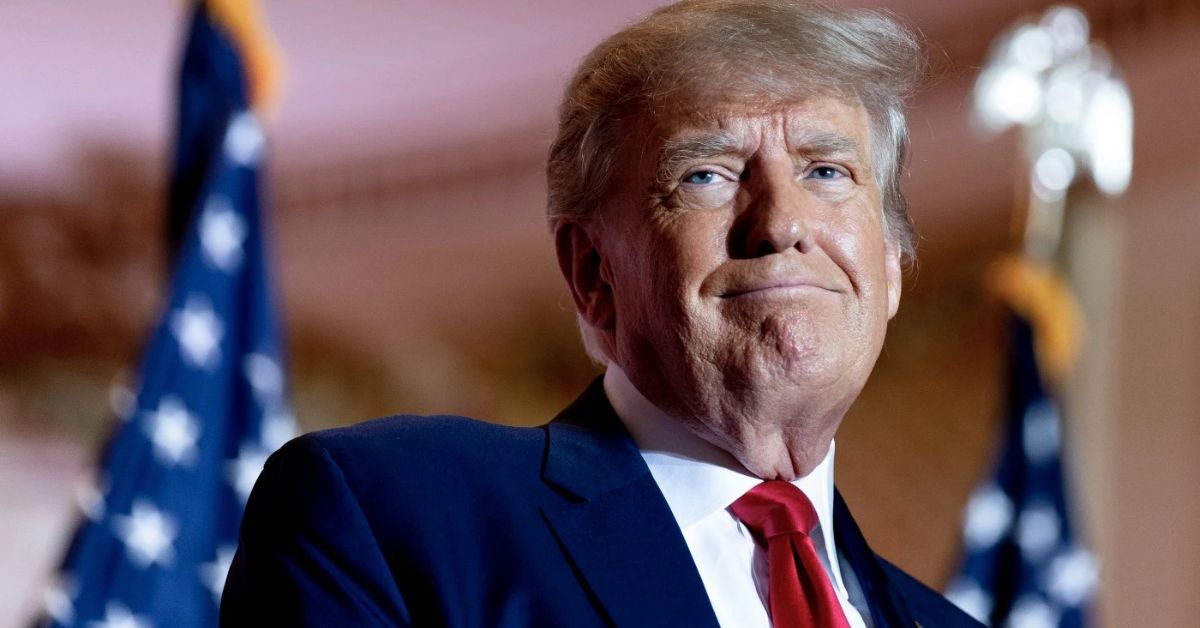On Tuesday, a prosecutor in the Atlanta area said she had interviewed several of the Republican activists who falsely claimed to be Georgia’s legitimate presidential electors as part of her investigation into efforts by former President Donald Trump and his friends to overturn the 2020 election.
Fulton County District Attorney Fani Willis said in a court filing on Tuesday that interviews were performed by her office on April 12 and 14, indicating that the investigation is still underway. In the filing, Willis revealed that more than one of the phony electors had provided details on possible legal offenses by another.
Because of the possibility for conflict among the several fraudulent electors, Willis is now requesting that the presiding court disqualify the attorney who represents 10 of the bogus electors, a situation she has previously contested with minimal success.

Willis’ office argued that it is no longer feasible for them to share the same attorney, Kimberly Debrow, now that some had offered testimony implicating others in alleged crimes. “It is unfathomable how Ms. Debrow can offer competent and adequate counsel to her client who has been accused of further crimes,” Willis argues in the filing.
The most up-to-date news and events in California can be found at the websites linked below:
- Bragg Considers a Fallback While Connecting the Trump Case to Campaign Law
- George Santos Confronted by Jordan Klepper Outside the Trump Circus
This is Willis’ first public comment on the investigation since January when she said that charge decisions were “imminent.” Her remarks came after a special grand jury finished looking into Trump’s effort to overturn the election results. Even while the special grand jury recommended filing criminal charges against an undisclosed number of people, it lacked the authority to actually do so.
Instead, Willis must present evidence to a regular grand jury, which may or may not agree with the special grand jury’s recommendations before issuing official charges. The fact that Willis’ special grand jury investigation lasted nearly a year and involved so many people from Trump’s personal circle suggests she was looking at more than just possible violations of Georgia election law.
New: Some of the Trump 2020 fake electors in Georgia recently implicated another of the fake electors in additional crimes in recent interviews with the Fulton County DA’s office, per new court filings. @guardian https://t.co/3sQnK7ceYx
— Hugo Lowell (@hugolowell) April 19, 2023
She went to court to get testimony from senators Lindsey Graham and Mark Meadows, former chief of staff Mike Flynn, and former national security adviser Rudy Giuliani. The phone contact Trump had with Georgia’s Secretary of State Brad Raffensperger on January 2, 2021, in which Trump asked Raffensperger to “find” just enough votes to alter the outcome of the election, is of special interest to Willis.
It’s nothing new that Willis is worried about the fake electors being properly represented in court. In November, she voiced concern that some of them would be more vulnerable than others in a court of law, might be required to testify against one another, or might have interests that necessitate separate representation.
Robert McBurney, the presiding judge, allowed 10 of the electors to continue being represented by a single counsel. Since David Shafer, chair of the Georgia Republican Party, appeared to be at higher risk of criminal exposure than the others, he agreed to force him to have separate representation.
Trump’s plan to stay in office despite losing the 2020 election relied heavily on fraudulent electors. On January 6, 2021, lawmakers met to count electoral votes and finalize the results of the election; Trump’s supporters pointed to the “competing” slates of electors to argue that Congress or then-Vice President Mike Pence should choose between them.
🍑 Georgia!
“At least one of the electors not represented by Ms. Debrow or Ms. Pierson has an immunity deal in place and has cooperated with the prosecution, people with knowledge of the case have said.”https://t.co/lvcV8PNNBq
— Jennifer Taub (@jentaub) April 18, 2023
Trump’s last ditch effort to remain in power was doomed when objections filed by his congressional friends were denied, and Pence ultimately rejected Trump’s repeated assertion that he had the sole right to stop the certification himself.
In December, when Biden’s certified electors also convened to confirm his victory in those states, many of the phony Republican electors, who were party activists or chairs in those states, helped convene the Republican electors. At least five of the states that went to Biden, including Georgia, had fraudulent electors sign certificates stating they were the state’s genuine presidential electors.
While some of the fraudulent electors were involved more closely with members of Trump’s inner circle, others have claimed they were never notified they would be used as components in Trump’s Jan. 6 plans. Dozens of them were summoned by and testified before the Jan. 6 select committee, and many more have already been subpoenaed by federal prosecutors investigating Trump’s election gambit.
Before the 2016 election, Trump was indicted in New York on charges of making hush money payments and concealing an affair. However, as prosecutors in Fulton County and the federal government move closer to making formal charging determinations, there may be more immediate legal dangers posed by the ongoing investigation.
Please add this site to your bookmarks! You, as a California Examiner, know how important it is to return frequently to check for changes.




